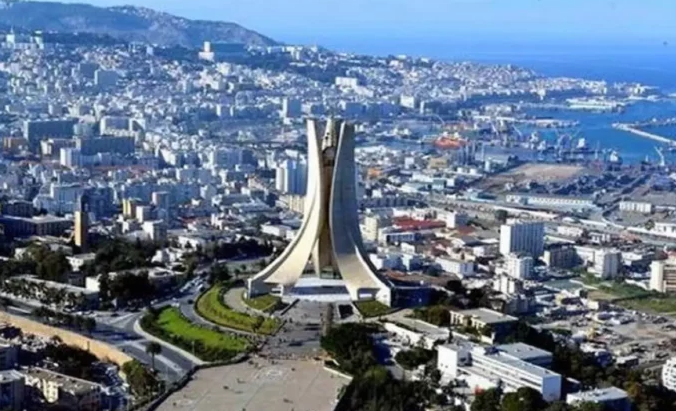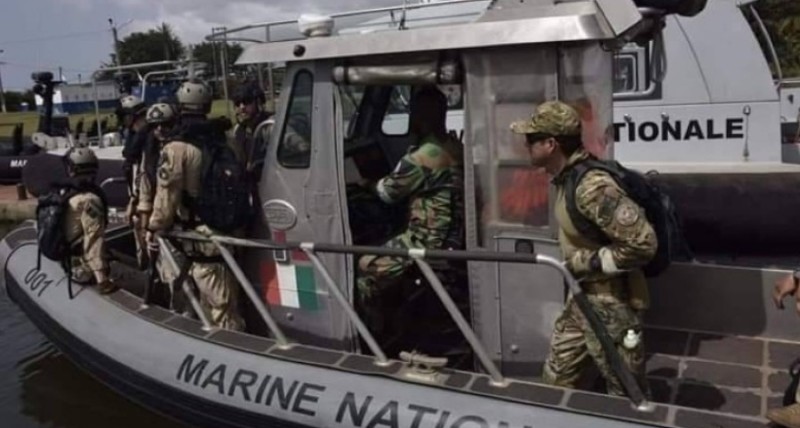Africa, the land continent, is also a maritime space bordered by a sea and two warm oceans—vast maritime gateways, free from climatic constraints, vital for its trade and critical zones for its security.
This analysis, published in La Tribune, is written by Gérard Vespierre, geopolitical analyst, founder of Le Monde Décrypté, and associate researcher at FEMO.
A Maritime Continent Often Overlooked
Africa spans 30 million square kilometers, nearly twice the size of Russia. Unlike the Russian land empire, Africa must maintain a privileged relationship with the sea. However, the geopolitical vision of a maritime Africa is not widely embraced and needs to be reinforced.
Out of 54 African countries, 38 have coastlines. The remaining 16 landlocked nations rely heavily on their coastal neighbors for trade, adding pressure and responsibility to these maritime states.
Ports play a threefold role:
- Trade Gateways: Handling imports and exports for 1.5 billion people in 2024, and preparing for 2.5 billion by 2050.
- Fisheries Management: Especially in West Africa, with 1.6 million tons of fish caught annually, valued at €2 billion.
- Industrial Hubs: Ports increasingly host industrial development zones, creating employment and driving local economies.
These roles, combined with Africa’s human geography and natural resources, make its ports a focal point of global geopolitical interest, especially in West Africa.
An Intensifying Global Competition
According to the Africa Center for Strategic Studies (ACSS), China is involved in 78 African ports through funding, construction, or operation—33% of the continent’s port infrastructure. Nearly half have hosted Chinese navy visits or exercises. Beijing’s strategy focuses on boosting trade between Chinese products and African raw materials, with no parallel in scale elsewhere in the world.
The United Arab Emirates (UAE) has also emerged as a major player over the past two decades. DP World, its leading operator, is developing the Ndayane Port in Senegal in a $1.2 billion project. Abu Dhabi Ports, another Emirati entity, is active particularly in East Africa, competing with China in its natural sphere of influence.
France’s Gradual Retreat
France has seen a decline in its port and logistics presence in Africa. A key example is the 2022 sale of Bolloré Africa Logistics to the Italo-Swiss group MSC, transferring control over 16 port terminals and strategic warehouses.
Yet France maintains assets:
- CMA CGM, a global maritime giant, remains influential in Nigeria and Cameroon, notably controlling Kribi deep-water port.
- Meridiam, alongside Arise (Singapore), inaugurated Nouakchott’s new container terminal in 2022, a key gateway for Mauritania and Mali.
Such investment or divestment choices reflect companies’ strategic risk assessments.
Maritime Threats and the Need for Enhanced Security
Piracy is the most publicized threat, but drug trafficking, illegal fishing, arms smuggling, and migrant trafficking also pose major challenges, costing billions in lost revenues and fueling Sahel instability, which is now spreading toward the Gulf of Guinea.
Since 2013, West and Central African states and the Gulf of Guinea Commission have developed a regional maritime security strategy known as the Yaoundé Architecture. France supports this via its Corymbe naval operation in cooperation with coastal nations.
Cybersecurity is now a rising concern. Projects like « Safe Seas for Africa », funded by the European Union and implemented by UNODC, UNITAR-ISMI, and IMO, aim to build regional cyber resilience.
These threats are reshaping port development criteria, especially in West Africa, with security now seen as a core structural element, not an add-on.
The Urgent Need for Modernization
From Abidjan to Kribi, via Lomé, Cotonou, and Douala, port infrastructure is modernizing and automating, with security integrated by design.
- Douala Port (PAD) handles over 70% of Chad and Central African Republic trade. It is now secured by PortSec SA, with long-range radar, biometric access controls, and escort convoys on key corridors.
- €210 million invested so far.
- Arise IIP to invest €350 million in an adjacent industrial zone.
- Cotonou Port, Benin’s logistics hub, is undergoing a €685 million modernization, including:
- Container terminal expansion
- Bulk terminal (20 hectares)
- New cranes to reduce turnaround times
- 40-hectare logistics zone
These upgrades aim to boost capacity from 12 to 20 million tons per year, enhancing Benin’s regional competitiveness.
A Strategic Development Imperative
Africa’s economic development, resource wealth, and global geopolitical rivalries are accelerating port infrastructure investment. This modernization is critical to improving living standards and addressing internal instability. If major global powers coordinate efforts, positive outcomes are still possible — for Africa and the world.
Source: mondafrique




